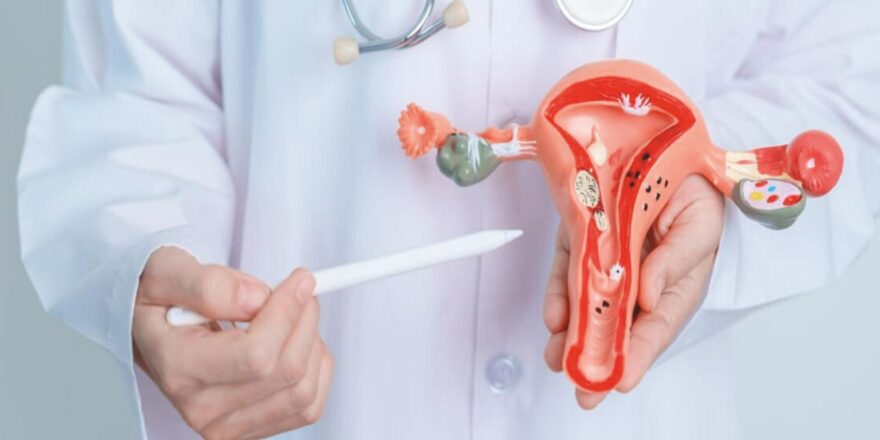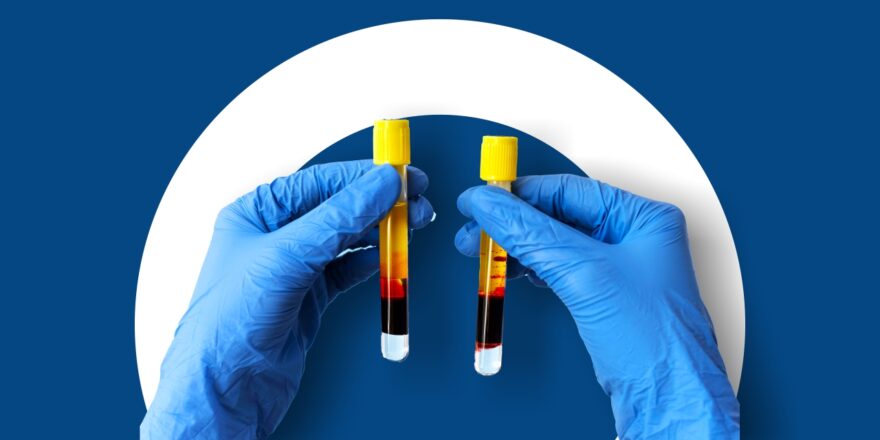Overview
Did you go for a test to check whether you have PCOS or not? PCOS or Polycystic Ovarian Syndrome is a common hormonal condition that affects women of reproductive age. The presence of PCOS is characterized by irregular periods and struggle to conceive. There are various symptoms that women can experience in PCOS such as acne, excessive hair growth, weight gain, and others.
What is PCOS?
Polycystic Ovary Syndrome (PCOS) is a hormonal disorder that affects women of reproductive age. If you are suffering from PCOS condition then high levels of hormones are produced from ovaries. It is a chronic condition that can lead to infertility. However, you can improve some symptoms through lifestyle changes, medications, and fertility treatments.
Causes of PCOS
The cause of PCOS is unknown but several factors can be considered as a cause of PCOS:
● Hormonal Imbalance – The androgen levels are higher in women with PCOS condition which leads to irregular or absence of menstrual periods. It also prevents ovaries from releasing eggs during each menstrual cycle. The main signs of PCOS condition are extra hair growth and acne.
● Insulin Resistance – The blood sugar level is regulated by the hormone insulin. Women with PCOS have insulin resistance. The level of insulin increases in the body which directly raises the production of androgens and leads to problems with ovulation.
● Genetics – PCOS is a genetic condition that runs in families so if your mother or sister has PCOS then your chances of developing it increases.
● Lifestyle Factors – Lifestyle changes and obesity may increase the risk of developing PCOS. Your excess weight can also increase insulin resistance which leads to problems with ovulation.
Common Symptoms Associated with PCOS
● Irregular periods – The irregular menstrual cycle is a common symptom for women with PCOS. It may be infrequent, prolonged, or absent. These hormonal imbalances impact the ovulation.
● Hair growth – Women with PCOS condition have increased hair growth on their face and body.
● Weight gain or obesity – It is difficult to maintain a healthy weight for women with PCOS and obesity is a common symptom. This may increase the risk of other health problems.
● Acne – The increased level of androgen makes the skin oilier and causes breakouts or acne on the face, neck, and upper back.
● Mood swings – A woman may experience mood changes, anxiety, or depression in the PCOS condition.
● Infertility – It is difficult to get pregnant with PCOS because of irregular ovulation or lack of ovulation.
How is PCOS Diagnosed?
The diagnosis of PCOS typically involves a combination of medical history, physical examination, and various tests.
● Physical examination – During the physical body examination, your BMI (body mass index), blood pressure, and waist size will be measured. The specialists will look for extra hair or any hair loss, acne, or skin discoloration.
● Pelvic exam – This test is performed to check and identify any abnormalities in the ovaries such as ovarian cysts or enlarged ovaries.
● Pelvic ultrasound – The pelvic ultrasound test helps to examine polycystic patterns in the ovaries and check the endometrium.
● Blood tests – The blood tests are done to check hormone levels like androgens, insulin, and glucose. The increased levels of these hormones can indicate PCOS.
Pregnancy and PCOS
The normal menstrual cycle is disturbed by PCOS which makes it difficult to get pregnant. The pregnancy complications increased in the PCOS condition. It can lead to a higher risk of miscarriage, high blood pressure, and gestational diabetes. Women can get pregnant by using different fertility treatments that improve ovulation.
Treatment Options for PCOS
The PCOS condition is not curable but symptoms can be improved.
● Losing Weight – If you are overweight or have obesity then losing weight can help to regulate your menstrual cycle and improve your fertility. For example – start doing physical exercise, eat healthy food, and change lifestyle habits.
● Medicine – The doctor might prescribe some medicines to you that help you to ovulate. It helps to increase the chances of getting pregnant.
● IVF (In vitro fertilization) – IVF is the best option if medicines are not working for you. In this process, the healthy egg is fertilized with the partner’s sperm in a laboratory and then implanted in the uterus to develop.
● Surgery – It is another option that can be used if other options are not working. During the surgical procedure, ovulation can be restored by ovarian drilling that helps in reducing the androgen hormones.
When to See a Doctor?
There are some major situations when you should see a doctor:
● When you have missed periods and are not able to get pregnant.
● If you have symptoms of PCOS like increased hair growth on your face and body.
It is important to plan regular visits with the doctor if you have PCOS problems. You should do regular tests to check for diabetes, high blood pressure, and other possible complications.
Conclusion
PCOS is a hormonal disorder that disturbs the menstrual cycle of women and it becomes difficult to get pregnant. The male hormones such as androgen level increase in the PCOS condition that leads to the hair growth on the face and body.
It is not a curable condition but you can do some lifestyle changes, weight loss, physical exercise, and other daily interventions in lifestyle to improve the symptoms of PCOS.
FAQ'S
Ans: The lifestyle factors such as weight, stress, bad food eating habits, not doing regular exercise, etc., can impact fertility. The hormone level can get disturbed, sperm count becomes low, and other fertility-related problems can occur.
Ans: To enhance fertility, you need to consume a balanced diet in which proper amounts of vitamins, proteins, and fibers are present.
Ans: Physical activity helps to maintain body weight and improve hormone levels that can simultaneously improve fertility.
Ans: Chronic stress majorly disturbs the menstrual cycle in females and sperm production in males and this will affect fertility. Start doing stress management methods such as yoga, deep breathing exercises, etc.
Ans: Fertility is majorly impacted by excessive consumption of alcohol and smoking. The hormone levels as well as sperm & egg quality are adversely affected by smoking and alcohol consumption.





